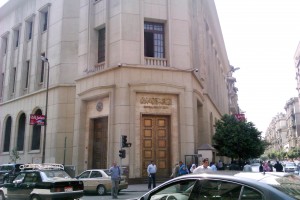
(Abdelazim Saafan/DNE Photo)
Foreign currency reserves increased to $18.9bn at the end of July as a result of the influx of gulf aid, the Central Bank of Egypt stated on its official website.
“It is expected news, but whether these levels will increase in the near future depends on how often the government will make import purchases,” said Ashraf Sharqawi, former chairman of the Financial Supervisory Authority.
Following the military’s ouster of President Mohamed Morsi, a number of Arab countries announced financial aid packages to Egypt, including $5bn from Saudi Arabia, $3bn from the United Arab Emirates and $4bn from Kuwait. An additional Bahraini aid package is also expected to be put forward soon.
On 27 July, Finance Minister Ahmed Galal announced that of the $12bn pledged, $3bn would be earmarked towards the state’s fiscal budget and $9bn would bolster foreign reserves.
The current foreign reserves, necessary to import staples, primarily wheat, registered $14.9bn this June compared to $16.04bn in May.
The lack of foreign reserves forced Egypt, one of the world’s largest wheat importers, to cut back on purchases of the grain earlier this year and rely on the domestic harvest.
Minister of Supply Mohamed Abu Shadi, who was appointed following Morsi’s ouster, announced a decision to resume wheat imports last month.
On 16 July, leading credit rating agency Moody’s, deemed the gulf lifelines “credit positive because they will have the immediate effect of offsetting pressures on Egypt’s balance of payments by substantially bolstering official foreign exchange reserves”.
So far, the central bank confirmed receipt of a total of $5bn in aid from the UAE and Saudi Arabia combined.
The gulf funds received have helped strengthen the value of the Egyptian pound against the dollar on the official market to EGP 6.99.
Last December, the central bank restricted access to the scarce US dollar because of the dwindling reserves, and attempted to curb a run on the pound by hosting dollar auctions to halt the sale of foreign currency.




